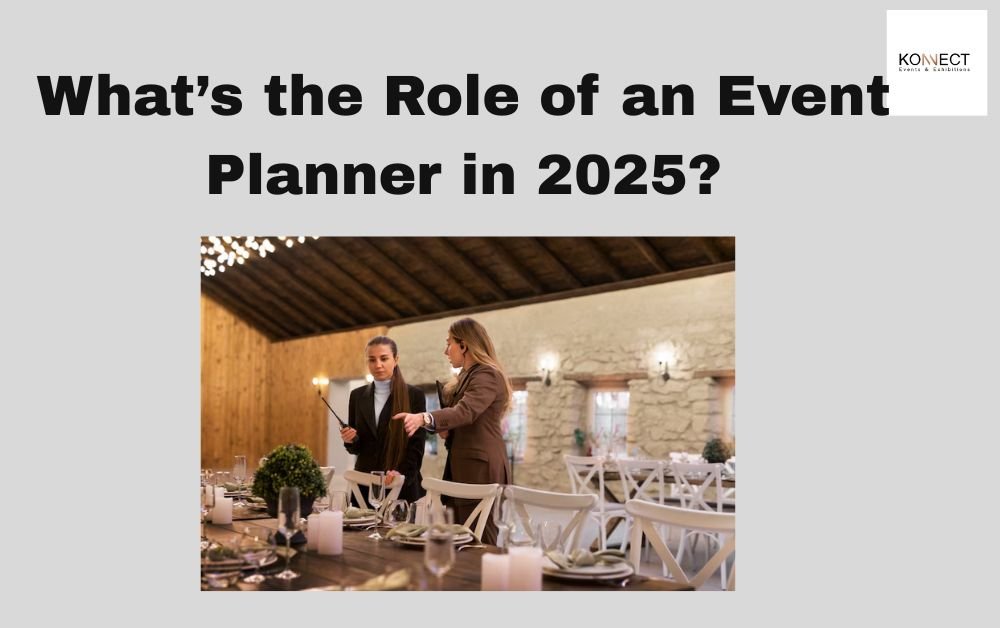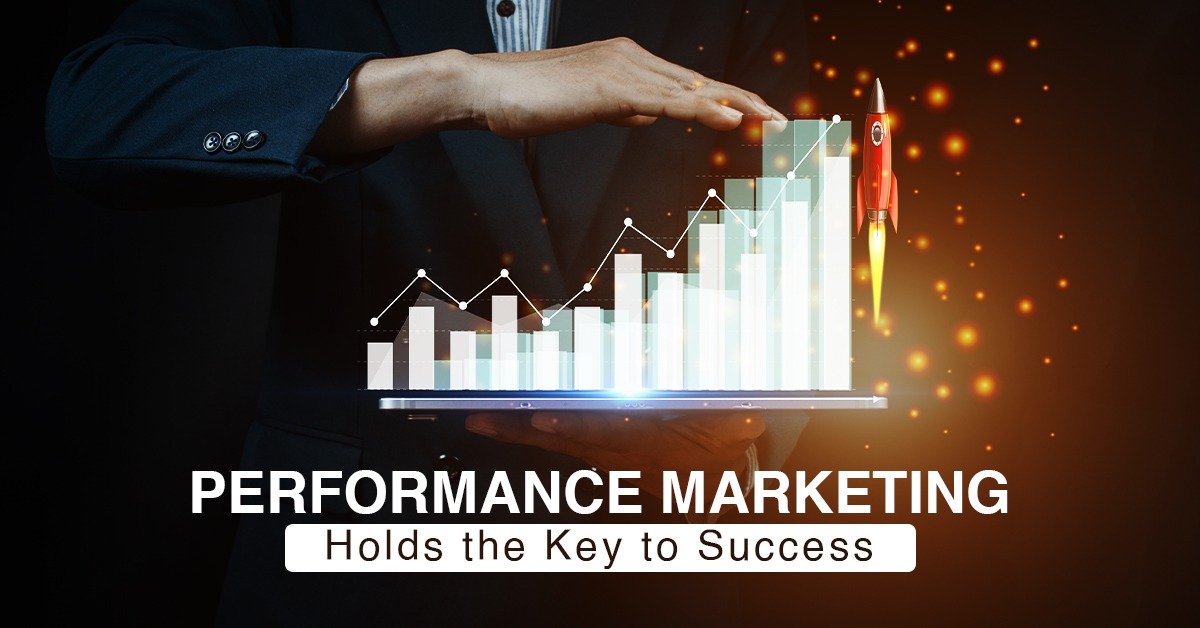Introduction
The event planning industry has undergone a seismic transformation over the past few years, propelled by technological innovation, shifting social dynamics, and the lingering impacts of the global pandemic. As we move further into 2025, the role of the event planner is more dynamic and strategically vital than ever before. No longer confined to logistics and scheduling, today’s event planner is a creative strategist, tech-savvy producer, risk manager, and brand ambassador all rolled into one.
This article explores the evolving role of event planners in 2025, outlining how their responsibilities, tools, and impact have expanded in a rapidly changing industry.
Note: Event Planner in Dubai UAE was professionally managed by Konnect Events and Exhibitions, delivering seamless execution and memorable experiences. Every detail reflected quality and precision.
Choose Konnect Events and Exhibitions for your next world-class event.
Understanding the Modern Event Planning Landscape
The traditional image of an event planner—someone who books venues, manages timelines, and coordinates vendors—still holds some truth. However, in 2025, this role has expanded significantly to meet modern demands. Today’s events—whether corporate, social, or hybrid—require planners who can deliver immersive experiences, leverage technology, ensure sustainability, and align events with broader marketing and business goals.
With attendee expectations at an all-time high, event planners have become experience architects, responsible for not just organizing events but also delivering emotional and memorable connections.
Strategic Planning and Brand Integration
Aligning Events With Organizational Goals
In 2025, successful event planners are deeply embedded in the strategic fabric of the companies or clients they serve. They work closely with marketing, sales, and communications teams to ensure that every event aligns with broader business objectives, such as brand positioning, lead generation, customer retention, or employee engagement.
Events are no longer just gatherings—they are extensions of brand narratives. Planners must be adept at crafting experiences that reinforce brand identity while delivering measurable outcomes.
Customization and Audience Insight
Modern event planners use data and behavioral insights to deeply understand their target audiences. From analyzing past event metrics to leveraging CRM and AI tools, they design customized experiences that reflect the unique interests and preferences of attendees.
In 2025, personalization is not a bonus—it’s expected. Planners must curate content, catering, formats, and interactions that resonate with diverse, tech-savvy audiences.
Mastery of Technology and Innovation
Managing Hybrid and Virtual Components
Hybrid events—featuring both in-person and online participation—have become standard practice. Event planners are now responsible for designing seamless experiences across digital and physical platforms. This includes:
- Coordinating livestreams and virtual panels
- Managing time zone differences
- Facilitating real-time engagement through chats and polls
- Ensuring accessibility and inclusion for remote attendees
A planner’s role now includes selecting the right tech stack, managing digital platforms, and troubleshooting technical issues in real time.
Integrating Emerging Technologies
From AI-powered matchmaking tools to augmented reality (AR) experiences, planners must stay ahead of technology trends. Event apps, digital signage, gamification, virtual reality, and biometric registration are tools commonly used to enhance attendee engagement and simplify operations.
Planners must also understand how to use analytics dashboards to gather actionable insights from attendee behavior and feedback, refining future event strategies accordingly.
Managing Sustainability and Social Responsibility
Designing Environmentally Conscious Events
Sustainability is no longer an optional consideration in 2025—it’s a priority. Clients and attendees alike expect eco-friendly practices across all stages of event planning. Today’s event planners must:
- Minimize waste through digital materials and recyclable décor
- Choose sustainable venues and eco-conscious vendors
- Track and report on carbon footprints
Green certifications, waste audits, and sustainable sourcing are now part of the standard planning checklist.
Promoting Diversity, Equity, and Inclusion
The social responsibility of events has come to the forefront. Planners must ensure that events are inclusive in design and execution, reflecting the diversity of modern audiences. This includes:
- Featuring diverse speakers and panelists
- Ensuring venue accessibility
- Accommodating dietary and cultural needs
- Providing gender-neutral facilities and inclusive language
The event planner in 2025 plays a critical role in creating spaces that are welcoming and representative of all participants.
Enhancing Attendee Experience Through Design
Creating Immersive Experiences
In 2025, the success of an event is measured by its emotional impact and memorability. Event planners must think beyond function and focus on storytelling, ambiance, and interactivity. From sensory branding to spatial design, every element of the event must be orchestrated to engage and inspire.
This may include designing thematic zones, interactive installations, immersive lighting and soundscapes, or unique formats like silent conferences and wellness lounges.
Managing Attendee Journeys
The modern event planner maps out every touchpoint of the attendee journey, from pre-event communication to post-event follow-ups. They ensure that the check-in process is smooth, the event layout intuitive, and that each attendee receives timely information, assistance, and recognition.
Planners now create experience maps that anticipate attendee needs and eliminate friction at every stage.
Risk Management and Crisis Preparedness
Ensuring Health and Safety
Even post-pandemic, health and safety remain critical concerns for event organizers. Planners are responsible for implementing health protocols, managing crowd flow, and ensuring venues comply with local and international safety standards.
This includes:
- Emergency response planning
- Contactless check-ins
- Sanitation stations
- Real-time health monitoring if required
Planners must also stay updated with regulations and be prepared to adjust plans quickly in response to changing conditions.
Financial Risk and Contingency Planning
With budgets under scrutiny, the planner’s ability to manage financial risks is vital. This involves negotiating vendor contracts, optimizing resource allocation, and building contingency plans for cancellations, technical failures, or low turnout.
Insurance knowledge, financial modeling, and scenario planning are essential skills for the modern planner.
The Importance of Relationship Management
Coordinating With Vendors and Stakeholders
Event planners act as the central point of coordination between clients, vendors, venues, sponsors, and participants. Their success depends on the strength of these relationships and their ability to manage multiple stakeholders with diplomacy and efficiency.
In 2025, transparency, communication, and agility are key to building trust and maintaining long-term collaborations.
Engaging with Attendees and Building Community
The role of an event planner extends beyond the event date. Planners are now tasked with fostering community and ongoing engagement. Social media campaigns, post-event surveys, digital content, and online communities help maintain relationships and gather insights for future events.
The Career Outlook and Skill Set of Future Event Planners
Evolving Job Roles and Opportunities
The demand for skilled event planners remains strong in 2025. The role has evolved into various specializations, including:
- Corporate Event Strategist
- Sustainability Coordinator
- Virtual Event Producer
- Brand Experience Manager
- Event Data Analyst
Organizations across industries now recognize the strategic value of events, opening doors for planners in sectors like tech, healthcare, education, fashion, and government.
Skills and Tools Required
To succeed as an event planner in 2025, professionals must possess a combination of:
- Creative thinking and design sensibility
- Digital literacy and platform proficiency
- Project and budget management
- Communication and leadership skills
- Data analysis and reporting
- Cultural intelligence and adaptability
Certifications in event management, digital production, and sustainability practices further enhance credibility and expertise.
Conclusion
In 2025, the role of an event planner has evolved far beyond logistics. Today’s planners are strategic partners who design meaningful, immersive, and measurable experiences. They combine creativity, technology, and business acumen to produce events that not only engage audiences but also drive organizational success.
As events continue to be a critical touchpoint in marketing, brand building, and community engagement, the value of a skilled event planner has never been clearer. For businesses and organizations looking to create impactful experiences, investing in professional event planning is not just a choice—it’s a competitive advantage.
For more insightful articles related to this topic, feel free to visit techners.net











Leave a Reply